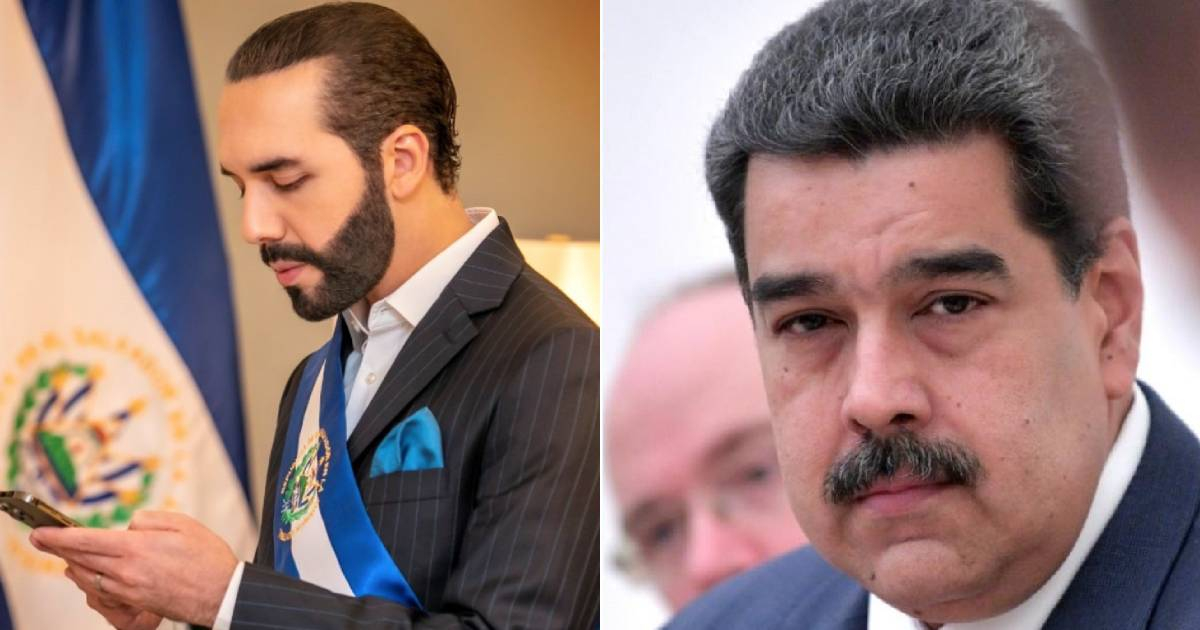El Salvador's President, Nayib Bukele, has extended an unusual proposition to Venezuelan leader Nicolás Maduro, suggesting the repatriation of 252 Venezuelans detained in El Salvador in exchange for the release of an equivalent number of political prisoners in Venezuela. In a message shared on his social media account on X, Bukele described this offer as a "humanitarian agreement" aimed at freeing individuals incarcerated solely for political reasons, including journalists, activists, opposition family members, and four individuals seeking asylum in the Argentine embassy in Caracas.
"You want Venezuelans back. I seek justice for political prisoners," Bukele stated, addressing Maduro's previous declarations of wishing for the return and freedom of Venezuelans. The Salvadoran president emphasized the differences in detention motives, pointing out that those detained in El Salvador were apprehended during operations against organized crime, particularly the Tren de Aragua, and are not political prisoners.
Potential Release Candidates Under the Deal
The Salvadoran leader has identified several individuals who could be freed if the exchange proceeds. These include Rafael Tudares, son-in-law of opposition presidential candidate Edmundo González; journalist Roland Carreño; human rights lawyer and activist Rocío San Miguel; Corina Parisca de Machado, mother of opposition leader María Corina Machado; and the four political leaders currently taking refuge in the Argentine embassy in Caracas. Additionally, Bukele mentioned nearly 50 foreign nationals detained in Venezuela from countries like the United States, Germany, Argentina, France, Colombia, Italy, and Ukraine.
Blessing for the Venezuelan People
Concluding his message, Bukele assured that the Salvadoran Foreign Ministry would formally send the proposal, offering a blessing for the Venezuelan populace. Analysts interpret Bukele's actions as a rare political and diplomatic maneuver, exerting pressure on the Maduro regime as the 2025 Venezuelan presidential elections approach. As of now, Maduro's administration has not officially responded to El Salvador's offer.
Background on Tren de Aragua
In March, Bukele announced that 238 members of the Venezuelan criminal organization Tren de Aragua, deported from the United States, were incarcerated in El Salvador's high-security facilities. These individuals were immediately taken to the Center for the Confinement of Terrorists (CECOT) to serve an initial one-year sentence, extendable under Salvadoran government discretion.
Trump's Accusations
In March, former US President Donald Trump issued a proclamation accusing the Maduro regime of aiding drug trafficking and supporting the operations of Tren de Aragua on American soil. Trump invoked the Alien Enemies Act, granting him extensive powers to act against foreign nationals deemed a national security threat. The proclamation declared Tren de Aragua a foreign terrorist organization, engaging in irregular warfare against the United States with the backing of Maduro's regime and the Cártel de los Soles, a drug trafficking network linked to high-ranking Venezuelan officials. This declaration ordered the immediate detention and deportation of all non-citizen or non-permanent resident members of Tren de Aragua in the US.
Frequently Asked Questions About Bukele's Proposal and Its Implications
What is the main proposal Bukele made to Maduro?
Bukele proposed to repatriate 252 Venezuelans detained in El Salvador in exchange for the release of the same number of political prisoners in Venezuela.
Who are some of the individuals Bukele wants to be released?
The list includes Rafael Tudares, Roland Carreño, Rocío San Miguel, Corina Parisca de Machado, and four political leaders sheltered in the Argentine embassy in Caracas.
How has Trump's proclamation impacted Venezuelan criminal organizations in the US?
Trump's proclamation led to the designation of Tren de Aragua as a foreign terrorist organization and ordered the detention and deportation of its members not legally residing in the US.
